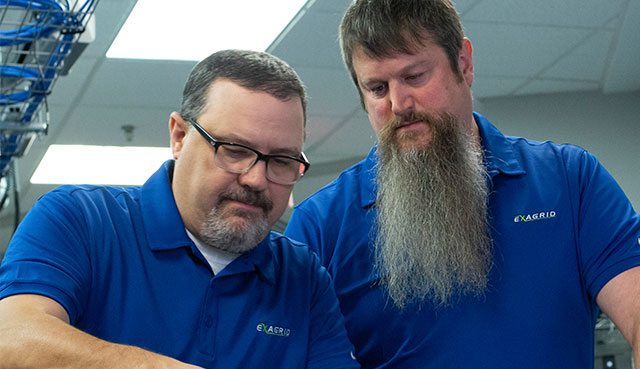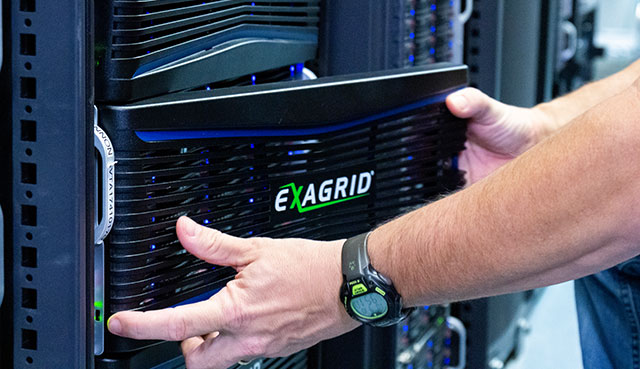30:1 Data Deduplication Increases Retention
ExaGrid incorporates data deduplication technology to reduce the amount of information stored and the system is currently achieving nearly 30:1 data deduplication. Plastipak is able to keep 60 days of backups on the system with room for growth.
“We are amazed at ExaGrid’s data deduplication technology,” said Mayled. “We are able to keep two months of data on the system so we can be ready for restores at any time. With tape, restores were a lengthy process but they are nearly instantaneous with ExaGrid.
ExaGrid writes backups directly to a disk-cache Landing Zone, avoiding inline processing and ensuring the highest possible backup performance, which results in the shortest backup window. Adaptive Deduplication performs deduplication and replication in parallel with backups for a strong recovery point (RPO). As data is being deduplicated to the repository, it can also be replicated to a second ExaGrid site or the public cloud for disaster recovery (DR).
As Plastipak’s data grows, the ExaGrid system an easily be expanded to handle additional data. The ExaGrid system can easily scale to accommodate data growth. ExaGrid’s software makes the system highly scalable – appliances of any size or age can be mixed and matched in a single system. A single scale-out system can take in up to a 2.7PB full backup plus retention at an ingest rate of up to 488TB per hour.
“I’ve worked for Plastipak for 15 years and I’ve been through numerous tape drives. Over the years I’ve experienced many problems with tape and tape drive failures, particularly in disaster recovery moments,” said Mayled. “ExaGrid really does eliminate all the problems associated with backups, including long backup windows, difficult restore processes and the day-to-day management of tape. It’s a very simple, clean way to protect valuable data at a price point comparable to tape.”





